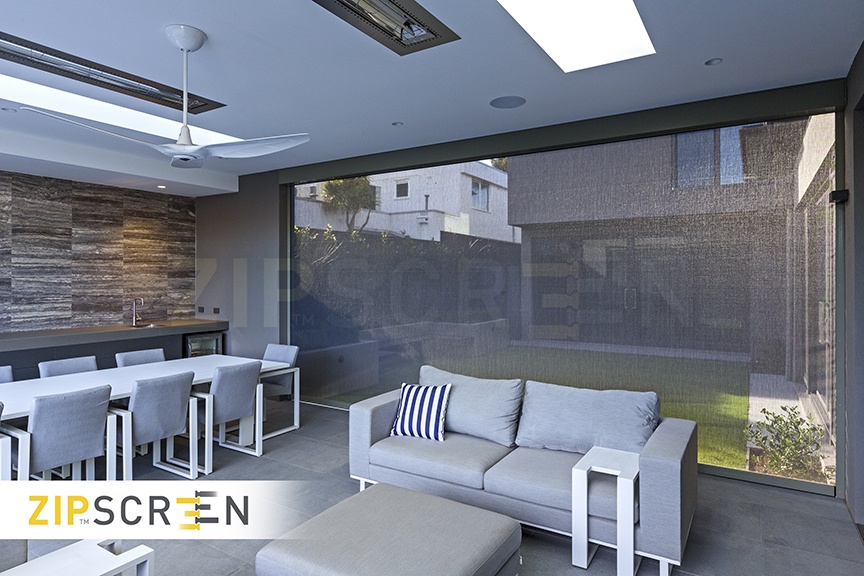Living on the second floor offers a unique perspective, but it also raises privacy concerns. You might feel exposed, especially if you have large windows facing a busy street or neighboring properties. This constant awareness of being seen can be stressful. One of the most common solutions for this dilemma is to manipulate blinds, raising or lowering them to control your visibility to the outside world. But the question remains, is it more secure to keep your blinds up or down for privacy on the second floor? The answer isn’t a simple yes or no.

Image: www.pinterest.com
This article delves into the nuances of privacy and security when it comes to second-floor blinds. We’ll explore the pros and cons of each approach, discuss factors to consider, and provide tips to enhance your privacy and security in your second-story home.
The Debate: Blinds Up or Down?
The age-old debate of whether to keep blinds up or down for privacy has no singular right answer. Both approaches have their merits and drawbacks, and ultimately, the best option depends on several factors:
**Blinds Up:**
- Pros: Allows natural light to flood your room, improving mood and energy levels. Offers a sense of openness and connection to the outdoors.
- Cons: Makes your home more visible to passersby, potentially exposing your activities and belongings. Can make you feel less secure if you’re living in a high-crime area or have a busy street view.
**Blinds Down:**
- Pros: Provides strong privacy, shielding your home from prying eyes. Can deter potential burglars, making your home seem less inviting.
- Cons: Can make your home feel dark and claustrophobic, especially if you have limited natural light. Might create a sense of isolation and detachment from the outside world. Can create a security risk if you rely solely on blinds for privacy, as a determined individual could easily peek through the gaps or even force them open.
Factors to Consider
Beyond the basic pros and cons, several factors influence the best choice for your specific situation:
- Location: Consider your neighborhood’s crime rate, the level of foot traffic around your home, and the proximity to neighbors. If you live in a busy city with high crime rates, keeping your blinds down might be a better option.
- Window Type: The type of window you have can also play a role. Large windows with wide expanses of glass will be harder to cover effectively with blinds, while smaller windows with thicker glass might offer more privacy even with blinds up.
- Personal Preference: Ultimately, how comfortable you feel with different levels of visibility will play a significant part in your decision. If you prioritize natural light and openness, you may be more comfortable with blinds up, whereas those seeking maximum privacy may opt for blinds down.
Boosting Your Privacy and Security
Rather than focusing solely on blinds up or down, consider a holistic approach to privacy and security, incorporating multiple strategies that work in tandem.

Image: sheerview.com.au
Beyond Blinds
- Window Film: Apply privacy window film to your windows. This film is typically tinted or patterned to obscure the view from outside while still allowing natural light to enter.
- Curtains: Pair your blinds with curtains for an extra layer of privacy. Consider blackout curtains if you need complete darkness.
- Plant Life: Strategically place plants or shrubs outside your windows to create a natural barrier and obscure the view from the outside.
- Security Lighting: Install motion-activated outdoor lighting to deter potential intruders.
- Home Security System: Consider investing in a home security system with cameras and sensors for added peace of mind.
Expert Tips for Maximum Privacy
- Choose the Right Blinds: Invest in high-quality blinds made of materials that offer good light control and privacy. Consider blackout blinds or cellular blinds, which are designed to block sunlight and improve privacy.
- Install Blinds Properly: Ensure that your blinds are installed correctly, leaving no gaps or spaces for potential intruders to peek through.
- Vary Your Routine: Don’t always keep your blinds in the same position. Vary your routine so that potential intruders don’t know your usual patterns.
- Maintain Awareness: Be aware of your surroundings, especially during nighttime hours. If you see anyone acting suspiciously near your home, call the police.
Blinds Up or Down: FAQs
Here are some frequently asked questions about blinds and privacy on the second floor:
- Q: What can I do if my blinds are flimsy and offer little privacy?
A: Consider replacing your blinds with a more robust option, such as wooden blinds or metal blinds with tighter slats. You can also add an extra layer of privacy by layering curtains over your blinds. - Q: I live in a busy area with a lot of street traffic. Is it always best to keep my blinds down?
A: While keeping blinds down can offer more privacy, it can also make your home look unwelcoming and even potentially attract unwanted attention. Combine blinds with other privacy measures, like window film or strategically placed plants, for a balanced approach. - Q: I’m concerned about intruders peeking through the gaps in my blinds. What can I do?
A: Invest in blinds with tighter slats, consider adding privacy film to your windows, or place objects in front of the windows to block the view from the outside.
Blinds Up Or Down For Privacy On Second Floor
In Conclusion
The decision to keep blinds up or down for privacy on the second floor is a personal one that depends on individual circumstances and preferences. Ultimately, the best approach is to implement a multi-pronged strategy that tackles privacy and security holistically. By combining blinds, window film, curtains, security lighting, and other measures, you can create a safer, more comfortable home environment.
Are you struggling with privacy concerns in your second floor home? Let’s discuss your unique situation and explore how we can help you find the best solutions to enhance your privacy and security.



/GettyImages-173599369-58ad68f83df78c345b829dfc.jpg?w=740&resize=740,414&ssl=1)


